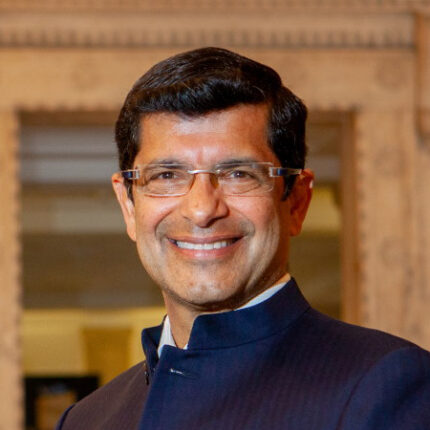Universities are and must remain the natural home of free speech. The concepts of academic freedom and freedom of speech are central to the work that universities do.
This central tenet of university life, rarely noticed or discussed by outsiders, has found itself at the centre of public concern and contention. And it’s safe to say that the media’s coverage of the topic hasn’t always shown universities in their best light.
Despite the media noise, universities generally feel that they have done a pretty good job of protecting the principles of free speech and academic freedom, and work hard to promote speech and academic freedom on their campuses. This has been well demonstrated in this year’s National Student Survey results, which show that 86 per cent of students agree that they feel free to express their ideas, opinions and beliefs. More importantly, a recent report from the King’s Policy Institute shows that more students in universities than members of the general public feel that they are free to express their views. So clearly there are matters of concern for us as a society, rather than just as universities.
Nonetheless, the government has chosen to legislate through the Higher Education (Freedom of Speech) Act 2023, which will be coming into force from January 2024. So as chair of Universities UK’s advisory group for freedom of speech and academic freedom, I’m pleased that recently we have published a briefing to support universities to prepare for the implementation of the act.
Protect and promote
This law will add new duties regarding freedom of speech and academic freedom on universities, colleges and students’ unions. One of the more positive features is that it enshrines a duty to not only protect but to actively promote freedom of speech and academic freedom. We’ve always explicitly supported this move, feeling that it will bring the centrality of academic freedom to universities into the limelight.
Precisely how this law will be put into practise is a work in progress. The Office of Students will be providing formal regulatory guidance, likely after consultation with the sector, before all aspects of the bill are implemented. Universities UK’s briefing is not intended to anticipate or replace that guidance, but to help universities understand the complex legal landscape around freedom of speech, to support and guide their thinking, and ideally spur debate and engagement on our campuses about how we can best prepare for our new regulatory duties in this area in a way that conforms to the law and upholds our values.
Universities have always taken their responsibilities in this area seriously. However, as society evolves, the areas where free speech and expression becomes contentious also evolves. Some of the recent challenges come from the complexity of balancing our commitment to academic freedom and free speech, while also creating inclusive and safe environments for an intellectually, socially and culturally diverse community.
There is also a question of whether and when universities, as corporate entities, should be taking a position on social, political and cultural issues. At one level, the university is an employer and staff want to know where it stands. At another, it’s a unique institution where taking such a stand may inhibit free expression by its members.
Balancing these competing demands is not easy. And the scales are constantly shifting. This is not just a challenge for us – the US, Canada and Australia are also experiencing their own versions of this tricky balance. Guidance is also evolving, from the succinct Chicago Principles to the more elaborate Princeton Principles.
In this context, Universities UK’s briefing sets out the legal landscape around freedom of speech and equality law. Upcoming work from Advance HE will provide more detail on a few specific areas relating to equality, diversity and inclusion initiatives and their balance with the freedom of expression and academic freedom requirements.
Serious and scholarly
While principles and guidelines are helpful, and the new law provides the legal boundary, how issues with freedom of speech or academic freedom are implemented in the daily life of a university will, and should, remain a matter for each scholarly community to consider and fine tune for itself.
To start discussions about this issue at King’s College London, I have held a series of presidential seminars on this matter, and have found them helpful in engaging the broader university community. Michael Spence, President and Provost at University College London has recently written about the Disagreeing Well initiative at UCL and there are many other such efforts taking off. This assures me that we are taking this issue seriously – not responding with edicts first, but in the scholarly way that universities should.
Freedom of speech and academic freedom are guiding principles at my university, and across the sector. It is our responsibility to our community, and a service to our society. My sincere hope is that the evolving regulatory context will help us reinforce the sector’s longstanding commitment to promoting free speech and academic freedom.














All well and good, except HR depts acting on the wishes of senior management continue to restrict Academic Freedom, and thus freedom of speech, lest it upsets one of the ‘customers’…